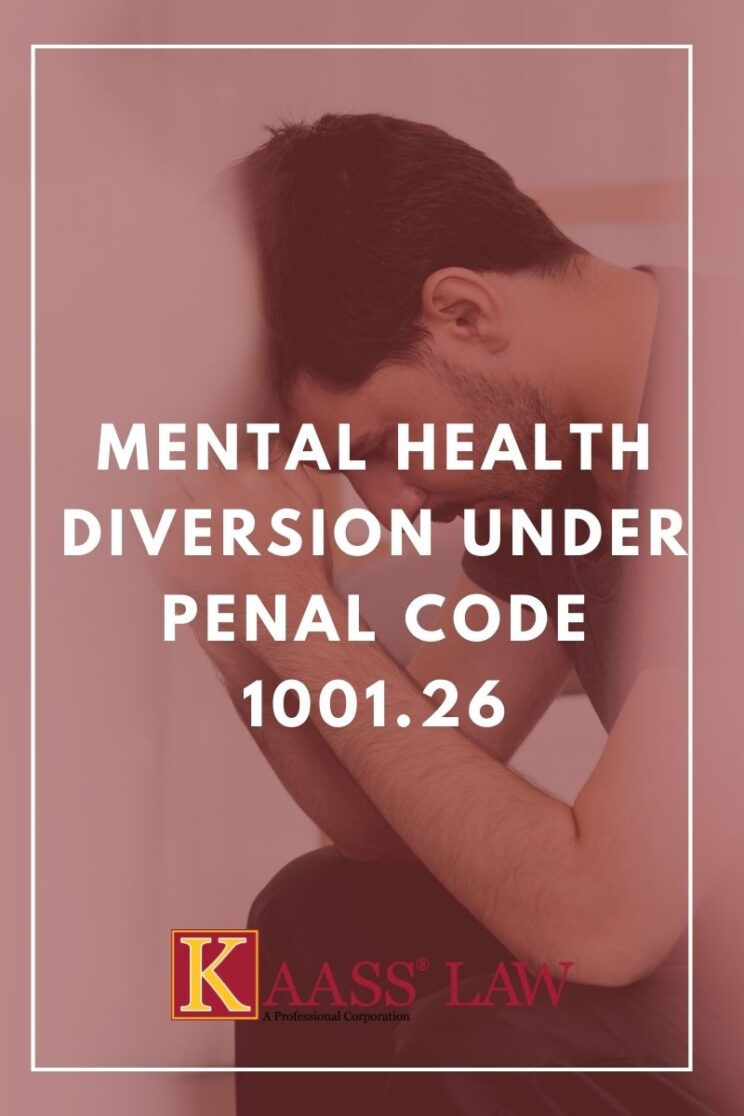What is a Mental Health Diversion?
Mental health diversion is explained under Penal Code 1001.36. In California, a defendant is able to receive treatment if they suffer from a mental disorder. Thus, this is referred to as a “pretrial diversion.”
What is a Pretrial Diversion?
A pretrial diversion postpones a defendant from taking further action on their case so that they may participate in a mental health treatment program. Thus, this allows the defendant to attend treatment and avoid jail time.
What Kind of Treatments Are Available Under a Mental Health Diversion?
The treatments that are available under the mental health diversion can be any of the following:
- Drug treatment;
- Therapy sessions; and/or
- Counseling
It is important to note that the judge must approve of the treatment plan the defendant wishes to receive prior to attending.
How Long Can Treatment Last?
The treatment the defendant seeks can last anywhere up to two (2) years, which can be conducted either as an outpatient or inpatient treatment.
What Happens After the Defendant Completes Their Treatment Plan?
If and when a defendant successfully completes their treatment, their criminal charges will be dismissed and will be as though the defendant had never been arrested to begin with. Furthermore, their record of the arrest will be sealed.
What Happens if the Defendant Fails to Complete Their Treatment Plan?
If the defendant fails to complete their treatment plan, their criminal charges will be reinstated. In other words, the criminal charges pending before the defendant may not be dropped and the defendant’s case may proceed forward.
What Are Examples that Can Prevent a Defendant from Completing Their Treatment Plan?
Some examples of why a defendant may fail to complete a treatment plan include:
- Mental health experts tell the court that the defendant’s effort in the treatment plan is not satisfactory; or
- The defendant is charged with a crime that illustrates violent tendencies
What Defendants Qualify for Mental Health Diversion?
Defendants who qualify for mental health diversion must meet the following conditions:
- The defendant suffers from a mental health condition that is not pedophilia, borderline personality disorder, or antisocial personality disorder;
- The mental disorder was a significant reason as to why they were charged with the violation;
- A mental health expert believes the defendant would respond to treatment;
- The defendant waives their right to a speedy trial;
- The defendant agrees to get treatment as a condition of the diversion program; and
- The court does not believe the defendant poses an unreasonable risk to public safety.
What Violations Are Ineligible for Mental Health Diversion?
The following list includes examples of violations ineligible for mental health diversion:
- Certain acts of terrorism;
- Lewd acts involving children as per Penal Code 288;
- Rape as per Penal Code 261; 261.5; or 262;
- Voluntary manslaughter as per Penal Code 192(a);
- Murder as per Penal Code 187
Los Angeles Criminal Defense Attorney
If you or someone you know has been charged with a crime eligible for a mental health diversion, contact our Los Angeles criminal defense attorneys at (310) 943-1171 for a free consultation. Our attorneys will evaluate the details of your case and let you know what to expect and how you can proceed.

